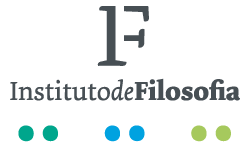Zoom | Lecture 6 | International Cycle THE RIGHT TO THE CITY
From: 2020-10-12 To:2020-10-12
Thematic Line
Modern & Contemporary Philosophy
Research Group
Philosophy & Public Space
THE RIGHT TO THE CITY
12th October 2020 | 19h00 | Zoom Meeting
Link for the Zoom meeting: https://videoconf-colibri.zoom.us/j/88547989980
Meeting ID: 885 4798 9980
LECTURE 6
LA RAZÓN CREATIVA DE LAS CIUDADES
A RAZÃO CRIATIVA DAS CIDADES
Francisco García García
School of Information Sciences of the Complutense University of Madrid (UCM)
Moderação: Professor Doutor Hugo Barreira (CITCEM)
Abstract: A city is creative when it knows how to detect its needs and problems, analyzes them, looks for alternative solutions, determines the most original and appropriate ones, carries them out in a comprehensive and innovative way, and positively evaluates its effectiveness and meaning; a city is creative when it explores and exploits its potentialities and wealth in a flexible way; when it coherently articulates tradition and innovation as inalienable values in its constructive and permanent evolution over time; when its project includes an active past, a dynamically innovative present and a forward-looking memory, a memory of the future that anticipates needs and problems, and generates efficient surprises in unforeseeable models.
Creativity is a transversal value in the origin, development, apogee, crisis, splendour and future of cities. It is so in the space-time realm of cities, in the cultures in which they reside and build: in the initial cities of Mesopotamia, in the city-states, in Greece and Rome, in the Middle Ages, in the Renaissance, Baroque, in the industrial revolution, in modern and contemporary times; in the cultures of Asia, Europe or America, in the city of the future. Significant are also the Eastern, Hebrew, Christian, Mohammedan religious influences. Lewis Mumford clearly says: "The ability to transmit in symbolic forms and human patterns a representative portion of a culture is the great characteristic of the city."
Every city is a living human project, encompassing all areas of life and jobs. The conglomerate of houses founds the neighbourhood, but the creative intelligence oriented to achieve the best for the man founds the city, the citizens are those who make the city as Rousseau says. The utopia of the conquest of happiness is oriented towards a future always in constant tension to reach the best city. Aristotle already said it, “men gather in the city to live, they stay in it to live the good life”
Short bio: Ph.D. in Information Sciences. Full Professor of Audiovisual Communication and Advertising at the School of Information Sciences of the Complutense University of Madrid (UCM) since February, 1995. Professor of Audiovisual Narrative, Audiovisual Rhetoric, Methods of Creativity and History of Audiovisual Media. Director of the Doctoral Program in Techniques and Processes in the Creation of Images (UCM). Director of the UCM research group SOCMEDIA. Editor of the indexed scientific journals Icono 14 and Prisma Social. Director of the National Center for Educational Information & Communication of Spain’s Ministry of Education, Culture, and Sports. Member of the Spanish Academy of Television Arts & Sciences since 2000. Principal researcher in several research projects funded by Spain’s Ministry of Innovation & Science, the latest one entitled OPEN DATA CITIZEN.
International Cycle of Lectures | The Right to the City 2019-2020: https://ifilosofia.up.pt/activities/international-cycle-of-lectures-right-to-the-city
More information: https://ppscic2019-2020.wixsite.com/righttothecity

Organização:
Research Group Philosophy and Public Space
Apoio técnico, divulgação e comunicação: Irandina Afonso | Isabel Marques
Instituto de Filosofia da Universidade do Porto - FIL/00502
Fundação para a Ciência e a Tecnologia
